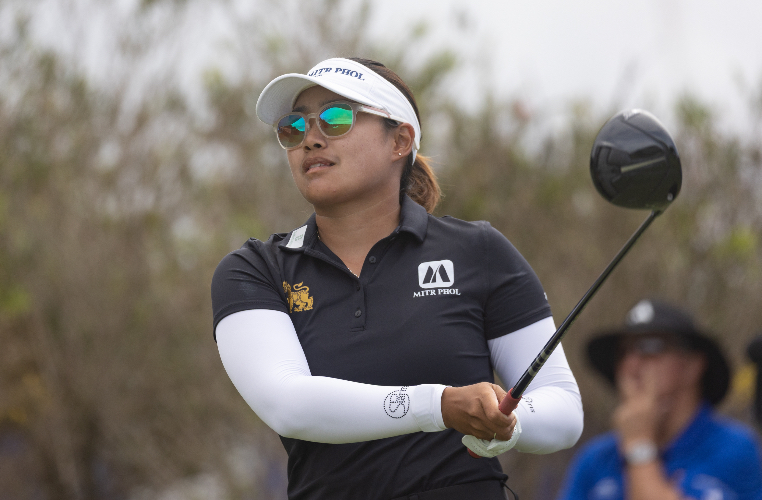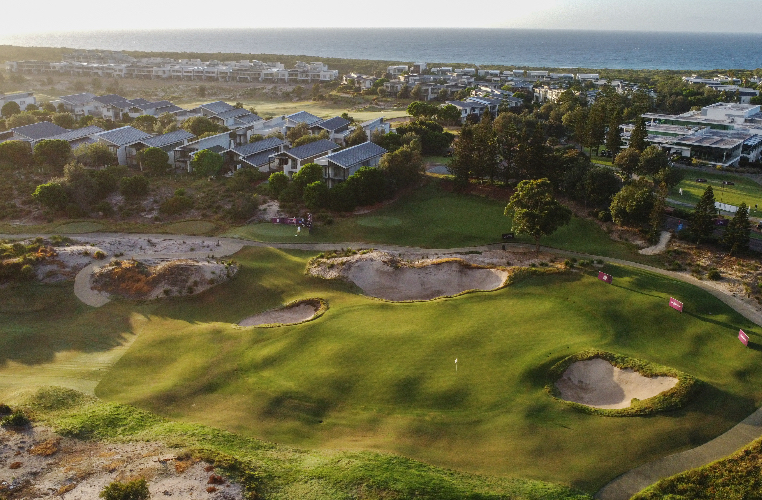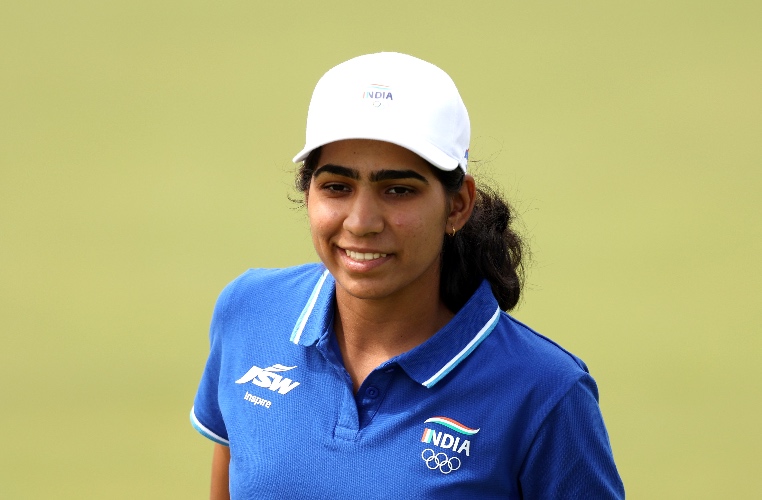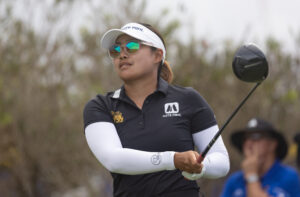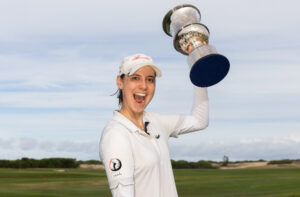Indian golfer Diksha Dagar heads into the Tokyo Deaflympics determined to defend her title and rekindle the fond memories of Japan she built while competing in the Olympics in 2021.
Dagar became the first golfer to represent India at the Summer Deaflympics in 2017, the same year the sport made its debut at the games. Competing in the women’s individual event, she won silver in 2017 in Samsun, Turkey, and added a gold medal in the 2022 edition in Caxias do Sul, Brazil.
“I am happy that these kinds of initiatives (in sports for deaf people) are getting popular,” Dagar told Kyodo News in a recent interview ahead of the Tokyo Deaflympics, which opened Saturday.
The 24-year-old, who grew up in New Delhi and took part in several sports from childhood, was introduced to golf at age six by her father, an army colonel.
Hearing impaired since birth, she began wearing hearing aids and learning to read lips early in life.
“I have completely worked on sign languages,” she said, responding without hesitation during an interview, though noting that her disability still poses some challenges.
“It is difficult to understand directions” a coach gives from the gallery at a tournament, she said.
Golf at the Deaflympics follows the sport’s standard rules, but safety communications rely on visual indicators such as flags instead of whistles or horns when play must be suspended due to lightning or is resumed after delays.
Widely regarded for her clean ball-striking, Dagar learned the sport solely under her father’s tutelage.
She entered India’s amateur golf circuit in 2012, turned professional in 2019, and made history the same year by winning the South African Women’s Open on the Ladies European Tour — becoming only the second Indian to win on the tour.
Dagar’s father, Narinder Dagar, who continues as her coach, expressed confidence while stressing the need for preparation for the three-day Tokyo tournament, which began Tuesday.
“She is right now also probably the favourite to win (the Tokyo Deaflympics), going by the rankings and the past records,” he said, “But of course, it is going to be a competition, so one has to prepare their best and remain very alert and focused.”
Her previous appearance in Tokyo came in 2021, when she received a last-minute Olympic invitation after a South African golfer withdrew.
Dagar’s participation was seen as a notable achievement for Indian golf. She finished tied for 50th at the tournament held just outside the capital in Saitama Prefecture.
“I felt I deserved to be there. And when I got into Tokyo 2021, it was like a dream come true,” Dagar said. “I was so emotional, it was a feeling beyond my imagination.”
Dagar also competed at the Paris Olympics in 2024, tying for 49th.
In addition to having fond memories of Tokyo, Dagar said she looks up to Japanese golfer Keita Nakajima.
“I played with him when I was 14 years old in Taiwan. Japanese players have a good short game. They hit very straight. That’s the one thing that impressed me,” she said.
Dagar is among 111 members in India’s Tokyo Deaflympics delegation, consisting of 73 athletes and 38 coaches, making it the largest the country has sent to the event.
India is participating in 11 sports – athletics, badminton, golf, judo, karate, shooting, swimming, table tennis, taekwondo, wrestling and tennis – across venues in Tokyo, Shizuoka Prefecture, and Fukushima Prefecture.
Dagar said India is still progressing toward better support for deaf athletes, noting that Japan remains ahead in providing opportunities for people with hearing impairments.
“In India, I wish deaf people had more support and opportunities…with a hearing disorder, life is challenging. All we want is to be treated equally,” she said.
